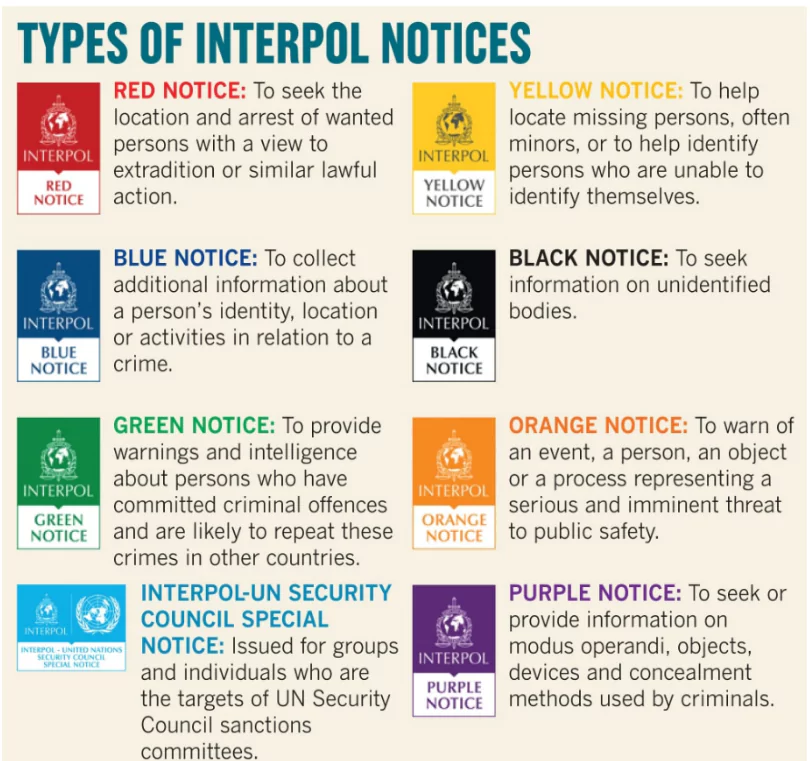Union Home Minister Amit Shah recently inaugurated the Bharatpol portal, which aims to provide police and security agencies in India with a seamless connection to Interpol, the international Police organisation.
About BHARATPOL Portal
- The BHARATPOL Portal is an initiative to enhance India’s international law enforcement capabilities through streamlined collaboration with INTERPOL.
- Aim: Streamline the processing of requests for international police assistance through INTERPOL.
- Facilitate real-time information sharing for faster access to international police collaboration.
- Developed By: The Central Bureau of Investigation (CBI) developed the portal and oversees its operation and integration with international law enforcement systems.
- Key Features of BHARATPOL
- Global Network Integration: Connects Indian investigative agencies to INTERPOL’s global network of 195 countries, enabling seamless collaboration for crime control and international investigations.
- Access to INTERPOL Databases: Access to 19 types of INTERPOL databases, aiding in crime analysis, prevention, and the apprehension of fugitives.
- Five Modular Components:
- Connect: Integrates all Indian law enforcement agencies as an extension of INTERPOL’s National Central Bureau (NCB-New Delhi).
- INTERPOL Notices: Facilitates quick, secure transmission of requests for notices such as Red Corner Notices.
- References: Simplifies seeking and providing international assistance in investigations.
- Broadcast: Provides real-time availability of requests for assistance from 195 countries.
- Resources: Manages documents and supports capacity-building initiatives for law enforcement officers.
- Real-Time Interface: Includes a real-time communication system that ensures quick and effective data sharing among agencies, enhancing crime control measures.
- Expedited Responses: Allows for faster handling of international and domestic requests, reducing delays in investigations and increasing efficiency.
- Support for “Trial in Absentia”: Enables prosecution of fugitives in their absence, ensuring justice is served even if criminals have fled abroad.
Enroll now for UPSC Online Course
About International Criminal Police Organization (INTERPOL)
- Purpose: Facilitates international police cooperation to combat cross-border crimes like terrorism, trafficking, and organized crime.
- Establishment Year: 1923.
- Member: 195 member countries.
- India’s Membership: India has been a member since 1956.
- Status: Independent international organization, not part of the United Nations system.
- Headquarters: Located in Lyon, France.
- Official Languages: Arabic, English, French, and Spanish.
- Role in Investigations: Acts as the first point of contact for international investigations but does not actively investigate crimes.
- Communication System: Member countries are connected through Interpol’s communication system, I-24/7, facilitating real-time contact and access to Interpol’s databases.
- Databases: Interpol manages 19 databases containing information on crimes and criminals, accessible to member countries.
Organizational Structure
- General Assembly:
- Supreme decision-making body with one delegate from each member country.
- Decisions are taken during annual meetings.
- General Secretariat:
- Operates under a Secretary General, who manages day-to-day operations.
- Secretary General’s Term: Five years, appointed by the General Assembly.
- Executive Committee:
- Comprises 13 members, each representing a different region.
- Oversees the implementation of General Assembly decisions and supervises the work of the Secretary General.
- National Central Bureau (NCB):
- Each member country has an NCB, acting as the central point of contact with INTERPOL and other NCBs globally.
- NCBs are managed by police officials and are typically housed in the government ministry responsible for policing (in India’s case, the Union Home Ministry).
- In India, the Central Bureau of Investigation (CBI) serves as the NCB.
Types of Notices

- 8 types of notices (7 of which are colour-coded): In the form of alerts/requests allowing police in member countries to share critical crime-related information.
- These notices are issued by the Interpol’s General Secretariat at the request of a member country’s Interpol National Central Bureau, and are made available for all member countries.
Central Bureau of Investigation (CBI)
- Origin:
- Established in 1941 as the Special Police Establishment (SPE) to investigate bribery and corruption during World War II in transactions with the War and Supply Department.
- Establishment of CBI:
- Recommended by the Santhanam Committee on Prevention of Corruption (1962–1964).
- Set up in 1963 by a resolution of the Ministry of Home Affairs and later transferred to the Ministry of Personnel.
- Legal Status:
- Not a statutory body; derives powers from the Delhi Special Police Establishment (DSPE) Act, 1946.
- Nodal Ministry: The Ministry of Personnel, Public Grievances, and Pensions, which falls under the Prime Minister’s Office (PMO).
- Functions and Responsibilities:
- Dual Responsibility:
- Investigates grievous cases of national importance.
- Provides leadership and direction to fight corruption across the police force in the country.
- Superintendence:
- For cases under the Prevention of Corruption Act, the superintendence lies with the Central Vigilance Commission (CVC).
Check Out UPSC CSE Books From PW Store
- Appointment of CBI Director:
- Pre-2014 Process: Appointed based on the DSPE Act, 1946.
- Post-2014 Process: Lokpal Act provided a committee for appointment of CBI Director
- Appointment committee:
- Prime Minister (Head).
- Leader of Opposition/Leader of the single largest opposition party in Lok Sabha.
- Chief Justice of India or a Supreme Court Judge.
- Process:
- The Ministry of Home Affairs sends a list of eligible candidates to the Department of Personnel and Training (DoPT).
- DoPT prepares the final list based on seniority, integrity, and experience in anti-corruption cases, and submits it to the committee.
- Tenure of CBI Director:
- CVC Act, 2003: Fixed tenure of 2 years.
- Delhi Special Police Establishment (Amendment) Act, 2021:
- Allows extension of tenure up to 5 years, with the following conditions:
- Extensions granted one year at a time.
- No extension permitted beyond a total of 5 years (including the initial 2-year term).
![]() 8 Jan 2025
8 Jan 2025

